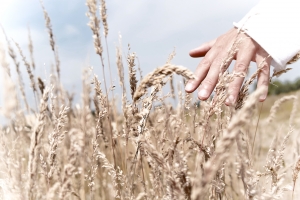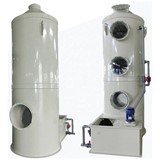The research is part of an University of Western Australia (UWA) collaboration searching for the genetic waterlogging secrets of sea barleygrass assisted by their knowledge about what genes allow rice to grow in similar environments. Sea barleygrass has the ability to live in waterlogged and saline soils and is the parent plant of a hybrid salt and waterlogging tolerant wheat being developed by the Future Farm Industries CRC (FFI CRC).
The researchers' objective is to find at the cellular level how the plant's waterlogging tolerance genes are expressed in its roots. One important genetic trait, which enhances the oxygen supply to the plant's roots in waterlogged soils, creates a barrier that prevents oxygen loss.
Heading up the collaboration is FFI CRC researcher Prof. Tim Colmer (UWA) who is working withlaser microdissection expert, Prof. Mikio Nakazono (Tokyo University), to look for gene expressionsin root tissue samples.
"UWA researcher, Dr Al Imran Malik, also involved in the project, has recently completed a two yearJapanese Society for the Promotion of Science (JSPS) fellowship in Prof. Nakazono’s laboratory.While in Japan, Dr Malik worked on a collaboration to identify the waterlogging tolerance genes inrice," Prof. Colmer explained.
"The known candidate genes associated with the waterlogging tolerance of rice will be searched for in the sea barley grass and the CRC's salt tolerant wheat hybrid."
Another team researcher, Dr Katsuhiro Shiono, has already made a valuable contribution to the collaboration by working with Prof. Colmer. His research has resulted in a better understanding of the barrier induction dynamics that prevents oxygen loss in waterlogging tolerant plants – something similar to a snorkel that allows oxygen to come down through the plant to supply the roots with oxygen.
"Already, Dr Malik's and Dr Shinono's research efforts have established several candidate genes anda new JSPS Fellow, Dr Lukazs Kotula, will continue to look for similar gene expressions in the roots of sea barleygrass and the salt-tolerant wheat amphiploid," Prof. Colmer said.
The research collaboration is an exciting opportunity for FFI CRC to undertake collaborative molecular work for gene discovery which will provide valuable knowledge to assist the FFI CRC'sbreeding program, led by Dr Rafiq Islam (University of Adelaide), to develop a salt tolerant wheat amphiploid (hybrid) to provide feed quality cereal.






